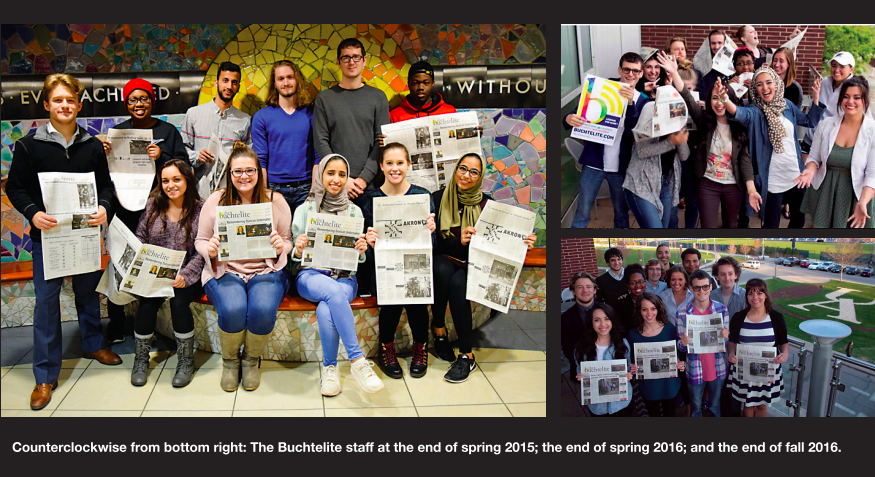“On Jan. 31, the Ohio Supreme Court ruled that Akron’s unmanned speeding cameras are legal and do not conflict with state law. This is a good thing. For those who aren’t aware, some time ago the city of Akron decided to put speeding cameras at certain intersections primarily in school zones and high accident areas to deter people from speeding.”
“
On Jan. 31, the Ohio Supreme Court ruled that Akron’s unmanned speeding cameras are legal and do not conflict with state law. This is a good thing.
For those who aren’t aware, some time ago the city of Akron decided to put speeding cameras at certain intersections primarily in school zones and high accident areas to deter people from speeding. Drive too fast through such an intersection, and within a few weeks you’ll open a piece of mail and be surprised with a speeding ticket. And here you thought you got away with it. Oops.
This makes sense, right? I mean, real officers are allowed to give people speeding tickets anyway, so there should be nothing wrong with having an automated system to enforce traffic laws. The outcome is the same, regardless of the method used: driving too fast results in a speeding ticket. The police are simply getting some help to enforce the law so they can focus on more important issues like gangs, drugs, robberies, rapes, murders, incest, etc.
And yet, the issue found its way to court. Why? Critics argue several points. The automated system sends a ticket to the vehicle’s owner as determined by the license plate, who may or may not be the person driving the car at the time. Lend your car to someone who speeds, and an innocent person is slapped with a fine.
The original case argued that a municipality exceeds its authority by creating a branch of civil penalties attached to existing traffic laws, though this has already been shot down in court. Warren Mendenhall, the Akron attorney who originally filed the suit, still plans to go back to court to argue the case on the basis of due process issues.
They’re all valid points, but not good ones. Some people just argue for the sake of arguing, even if it’s against the greater good and society’s best interest.
Traffic laws exist for a reason. They make our streets and sidewalks safer and help protect lives. That’s just common sense. In a perfect world, everyone would obey the rules, but that’s not the case. So why would anyone argue against something that helps to enforce traffic laws that already exist?
Yes, it’s kind of like Big Brother watching over your shoulder, but people shouldn’t be speeding anyway-so it’s not that big of a deal.
Even just around the university, we see bad drivers on a daily basis. Seeing people speeding up well above the speed limit just to make it through a light that turns red way before they get there anyway is a pretty common occurrence. Not signaling when changing lanes or turning also happens frequently, even though it can be just as disastrous as speeding.
Parking in handicapped spots, ignoring ‘No left turn’ and ‘Right lane MUST turn right’ signs, and cutting across three lanes of traffic after turning right onto Broadway from Exchange are all things drivers know they shouldn’t be doing, but still they ignore the law.
People will continue to ignore traffic laws, and since the police can’t catch everyone doing it, maybe having an automated system to catch speeders will, at least, have somewhat of an affect, however incremental, on making the streets a little bit safer.
“

